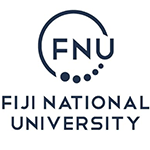Fiji National University (Fiji National University) related introduction:
Introduction and Overview: Fiji National University is an important institution of higher learning in Fiji, with campuses and centers in 40 places across the country, a total of about 300 courses or programs, 2,000 employees, and a student population of about 26,000. The school offers a variety of courses from undergraduate to postgraduate, covering agriculture, business, engineering, medicine, nursing, science, technology and other fields. It is the largest university in the South Pacific.
History and establishment time: Fiji National University was officially established on February 15, 2010, in accordance with the Fiji National University Act 2009. However, its relevant educational history can be traced back to the origins of its subordinate colleges. With the development of these colleges and the needs and instructions of national development, they were eventually merged to form Fiji National University.
School strength: The school has a professional teaching team, cooperates with the Australian Academic and Research Network (AARNet), has ultra-high-speed broadband, and the library has also been transformed into a modern "social learning commons". At the same time, the school is constantly investing in upgrading facilities, and has built a gymnasium, business school building and teaching building. In addition, the school has established cooperative relationships with some domestic and foreign companies and institutions to provide students with internship and employment opportunities.
Nature of the institution: Public university, funded and managed by the Fijian government.
Educational philosophy: Committed to empowering future leaders with knowledge, skills and abilities to enable them to define their own personal and collective future. Advocate academic freedom, promote diverse ideas, encourage free expression and exploration, and provide equal opportunities for students.
Key disciplines: Medicine, nursing, agriculture, business management and other disciplines are its key disciplines. For example, the medical profession has a long history and has trained many professionals in the medical field; the agricultural discipline combines Fiji's local agricultural development needs to provide students with a combination of practical and theoretical education. No key laboratory related content is mentioned.
Faculty: The school has five colleges and one national center, namely the College of Agriculture, Fisheries and Forestry, the College of Business, Hotel and Tourism Studies, the College of Engineering, Science and Technology, the College of Humanities and Education, the College of Medicine, Nursing and Health Sciences, and the National Training and Productivity Center.
Ranking: There is no clear international authoritative ranking, but as the largest university in the South Pacific, it has a high reputation and influence in the local and South Pacific region.
Cost: Tuition fees vary depending on the course and can be found on the school's official website. Referring to other information on studying in Fiji, the annual tuition fee for undergraduates is about 70,000 to 80,000 RMB, and the annual tuition fee for masters is about 120,000 to 150,000 RMB. The monthly cost of on-campus dormitories is about 500 to 1,000 RMB, and the monthly cost of off-campus apartments is about 1,500 to 2,000 RMB. Catering costs 1,500 to 3,500 RMB per month, transportation costs 500 to 1,500 RMB per month, and other expenses cost 2,000 to 3,000 RMB per month.
Campus environment: The campus facilities are modern, with facilities such as libraries, laboratories, gymnasiums, and student dormitories. The school is located in the urban area, with convenient transportation and complete surrounding supporting facilities, such as banks, post offices, supermarkets, etc., which are close to the school. The campus has a rich cultural life, with various clubs and societies, and many cultural and sports events are held throughout the year.
-

University of Fiji
-

Fiji National University
-

Mesoamerican University
-

Istmo University
-

Mariano Galvez University of Guatemala
-

Regional University of Guatemala
-

Galileo University
-

Francisco Marroquín University
-

Rafael Landívar University
-

University of the Valley of Guatemala
-

University of San Carlos of Guatemala
-

Technological Institute of Tlaxcala Plateau
-

Golfo University
-

Technological University of South Sonora
-

Technological University of Huejotzingo
-

Tizimín Institute of Technology
-

Chilpancingo Institute of Technology
